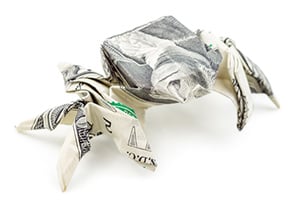 President Donald Trump purportedly rang his National Security Advisor Mike Flynn at 3 a.m. Tuesday morning (Feb. 7) to ask the following question about U.S. economics: Is a strong dollar good or bad for America?
President Donald Trump purportedly rang his National Security Advisor Mike Flynn at 3 a.m. Tuesday morning (Feb. 7) to ask the following question about U.S. economics: Is a strong dollar good or bad for America?
As the news of POTUS' twilight inquiry surfaced in the media, beginning first with The Huffington Post, Trump's critics were quick with their derision:
- "Donald Trump was 'so confused about basic economics he had to phone a friend at 3am'" - the UK's Daily Mirror reported yesterday.
- "Trump wonders how dollar is formed, asks lunatic retired general to explain" - Daily Kos wrote, exhibiting its complete lack of journalistic integrity in doing so.
- "Trump Called National Security Adviser for Late-Night Economics Lesson: Report" - stated a far more muted New York Magazine.
Regardless of whether or not Trump's earnest inquiry was indicative of economic ignorance on his part, his question indeed made an impact on those who read about it...
Google search volume for the question "is a strong dollar good or bad?" jumped from roughly 876,000 searches on Monday (Feb. 6) to over 2.2 million today.
Here is the answer everyone, including POTUS, is looking for...
Is a Strong Dollar Good or Bad?
Simply put: It depends.
You see, a strong U.S. dollar is the main reason that prices for commodities like oil, copper, and aluminum fall. Because commodities are priced in dollars, a more valuable dollar buys more of them for less dollar output. This is a disappointing (albeit usually temporary) setback for commodity investors, as the worth of their varying investments decreases.
Must Read: Know Exactly What to Buy, What to Sell, and How to Protect Your Money in 2017
A strong U.S. dollar can also hurt the earnings of U.S. corporations with significant overseas businesses. That's because a strong U.S. dollar makes U.S. exports more expensive, especially when paired against the price of exports in foreign currencies.
You see, if the greenback strengthens against another currency, then goods and services in the United States become more expensive for people using those other currencies outside the States. Therefore, consumers overseas might buy fewer American-made goods going forward, opting instead for cheaper products made elsewhere, which is then bad for American producers.
In the past, President Trump has expressed his concerns about a strong dollar in relation to the sale of American products in foreign markets. On Jan. 17, he told The Wall Street Journal that a hearty greenback was effectively "killing" the U.S. economy...
"Our companies can't compete" with foreign companies, Trump said, "because our currency is too strong."
Trump's pick for Treasury secretary, Steven Mnuchin, wrote to members of the U.S. Senate on Jan. 24 about the effects and consequences of a strong U.S. dollar.
"The strength of the dollar has historically been tied to the strength of the U.S. economy and the faith that investors have in doing business in America," he wrote, "from time to time, an excessively strong dollar may have negative short-term implications on the economy."
But, as Mnuchin initially pointed out, there are benefits of a strong dollar...
For one, a healthy greenback makes imports cheaper. That's because goods produced abroad that come into the United States will have to be sold at a devalued cost if their relative country's currency falls or stagnates against the dollar's surge.
The lower the import cost because of varying exchange rate fluctuations, the more disposable income in the pockets of American consumers.
Furthermore, foreign companies and their shareholders benefit from a stronger U.S. dollar. That's because international corporations that have a large number of sales in the United States earn income based on the greenback. When the dollar surges, these firms will see gains in the dollar translate to gains on their balance sheets.
Finally, to harken back to Mnuchin's statement about the strong dollar representing the overall robustness of the U.S. economy, a healthy greenback is indeed a global "status symbol." The dollar is the de facto world reserve currency. A strong dollar helps keep its own demand as a reserve high.
Up Next
Money Morning Executive Editor William Patalon, III, knows that just about any investment in gold will pay off handsomely as prices rise.
But for maximum gains, Patalon says you should consider buying a gold mining stock. That's because gold mining stocks tend to amplify the price of gold, delivering as much as twice the gains of the yellow metal.
While twice the gains sound promising enough, Patalon has a stock pick with the potential to deliver returns of up to 10,000% over the next few years.


